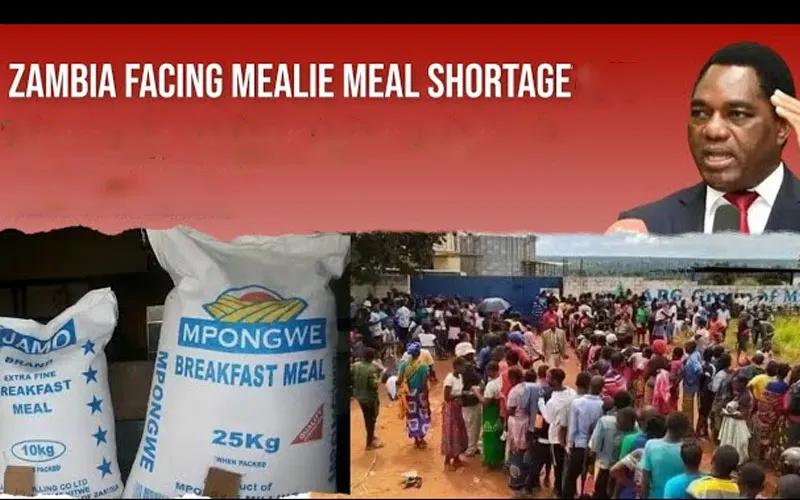Lusaka, 21 April, 2023 / 10:30 pm (ACI Africa).
Officials of Caritas Zambia have highlighted “short-term, medium-term and long-term priorities” to not only address but also prevent the recurrence of maize shortage, and ensure “sustained food and nutrition security” in the Southern African nation.
Zambia is experiencing a maize shortage, which has affected the production of maize flour, mealie meal, used to make the country’s staple food.
In a Tuesday, April 18 statement, Caritas Zambia's Livelihoods and Climate Change Programme Officer says the entity has noted "with grave concern" reports of mealie meal shortage "as it has an impact on the country's food security."
“To address the mealie meal shortage, prevent recurrence of this situation as well as ensure sustained food and nutrition security in the country, we reiterate our call on government to address the following short-term, medium-term and long-term priorities,” Eugene Ng’andu says.
In the short-term, Mr. Ng’andu says that the government needs to control illegal exportation of mealie meal.








